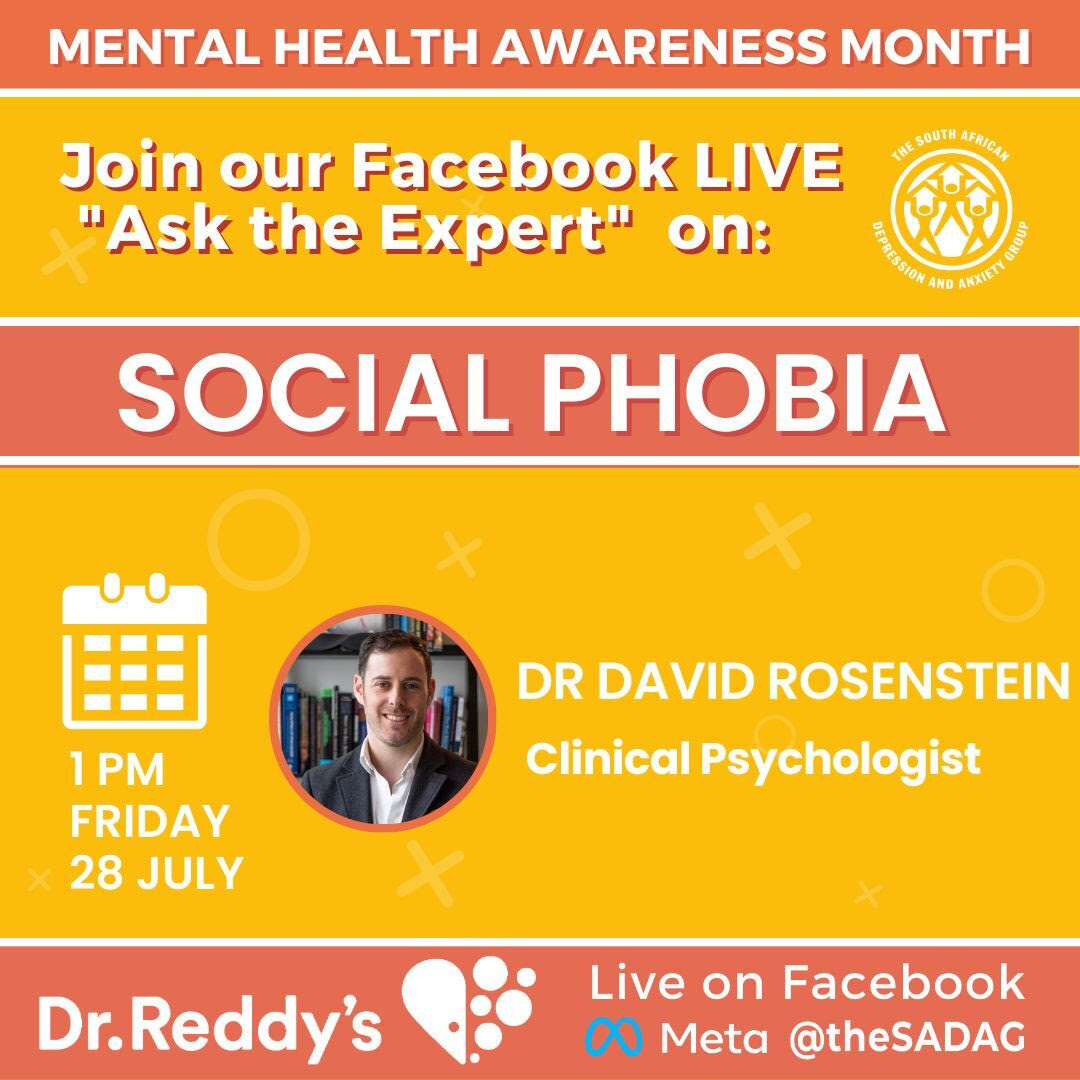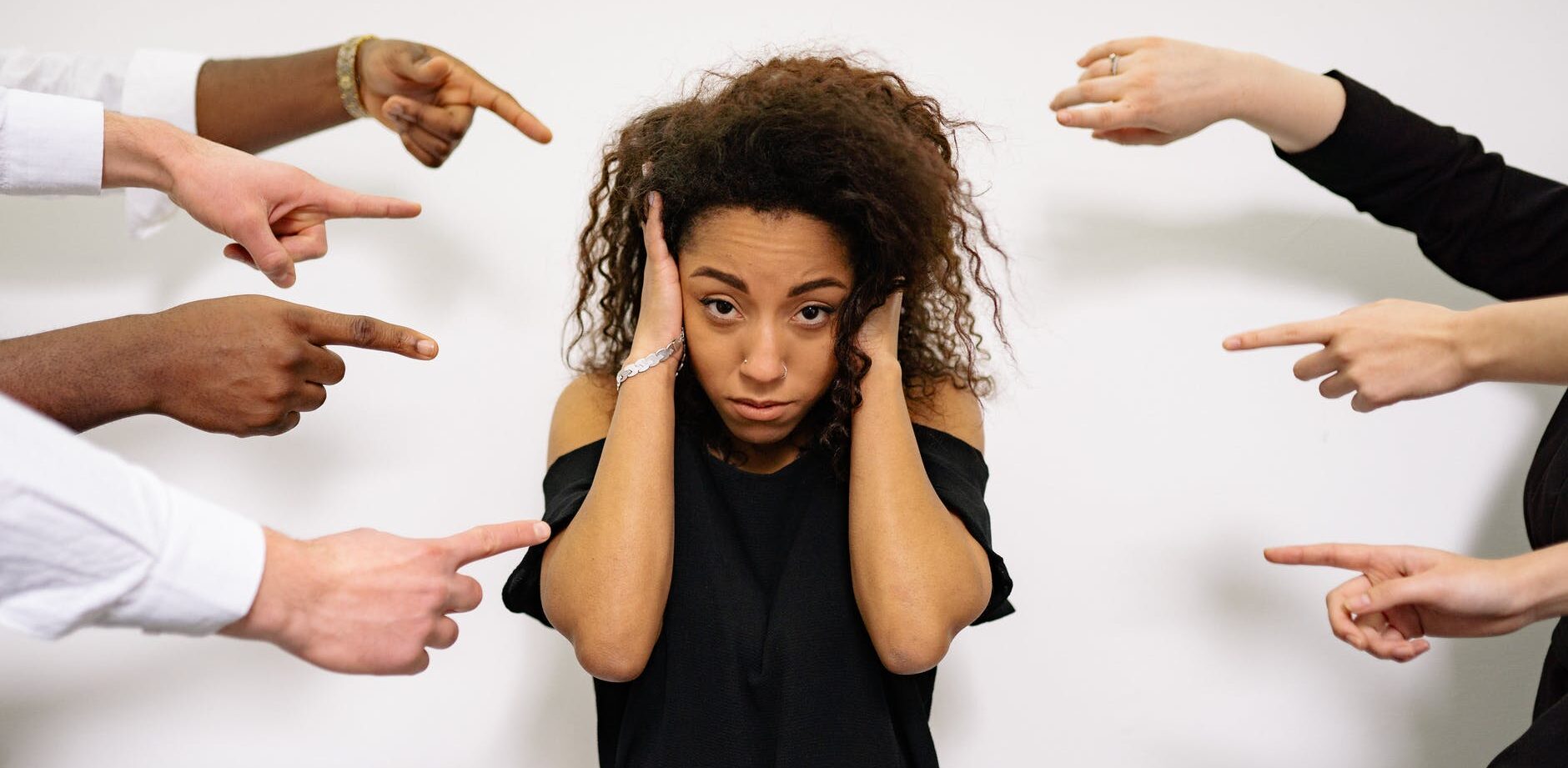By the South African Depression and Anxiety Group (SADAG)
Social Phobia is also known as Social Anxiety Disorder. As an advocate for Mental Health, SADAG aims to provide understanding, compassion, and support for individuals affected by this often misunderstood condition.
Social Phobia is a challenging Mental Health disorder characterised by an intense fear of social situations, leading individuals to experience overwhelming anxiety, self-consciousness, and a fear of judgment or embarrassment. These feelings can impact different aspects of one’s life, including relationships, work, and school.

Clinical Psychologist, Dr Colinda Linde said “It’s not that you are scared of people as such, but what it is about is that you’re incredibly self-conscious. It’s not like being shy or an introvert. The core of this is that you are very self-conscious, you don’t want anyone to be observing you.”
Here are some of the common signs and symptoms of Social Phobia:
- Blushing, sweating or trembling.
- Worrying about embarrassing or humiliating yourself.
- Feeling self-conscious or fearful that people will judge you negatively.
- Speaking with an overly soft voice.
- Avoiding places where there are people.
- Feeling completely disassociated.
What are the Risk Factors?
Several factors can increase the risk of developing Social Anxiety Disorder, including:
Family history – You’re more likely to develop Social Phobia if your biological parents or siblings have the condition.
Negative experiences – Teasing, bullying, rejection or embarrassing situations, family conflict, trauma, or abuse, may be associated with this disorder.
Personality Traits – Those who are shy, timid, withdrawn, or restrained when facing new situations or people may be at greater risk.
What coping strategies can you use?
- Educate yourself – by reading more about Social Phobia through books, articles, and watching videos.
- Manage your thoughts ‒ tell yourself kind and encouraging words.
- Rehearse ways to greet and have conversations with people.
- Have a hobby or join a sports club and be around others with similar interests.
- Gradually expose yourself to situations that trigger your anxiety so that you can build confidence.
- Pause and breathe – deep breathing techniques will help with anxiety symptoms.
- Practice good health habits like eating well, sleeping well, exercising, and drinking enough water.
For more information, please visit our website at www.sadag.org. We are also available if you need help on our FREE helpline on 0800 456 789 (24hrs), or SMS 31393 WhatsApp 087 163 2030 (8 am-5 pm).


